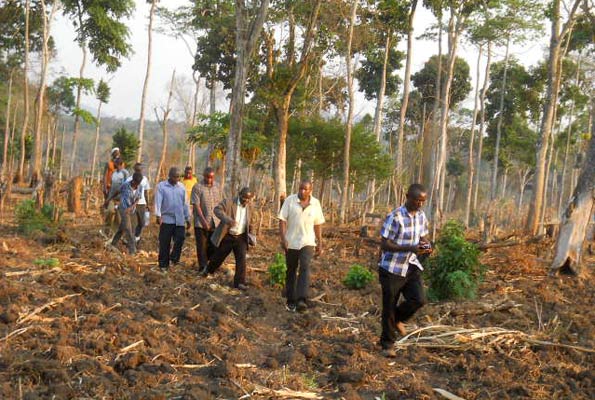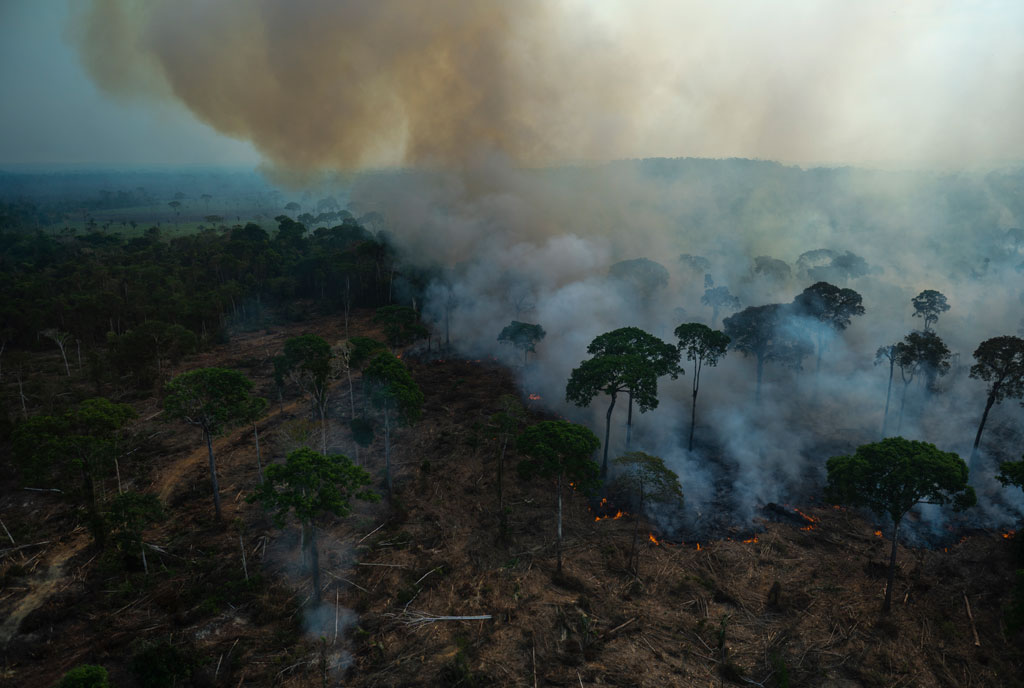Scientists call for participation of youth in forest conservation

Conservationists inspect part of Bugoma Forest in Hoima that is being threatened by encroachment. Photos by FRANCIS MUGERWA.
What you need to know:
- The country has lost a vast amount of its forest cover to agricultural encroachment, urbanisation among others.
Scientists have called for the participation of youth in conservation of forests to help mitigate climate change.
Dr Hilary Agaba, the director of National Forestry Resources Research Institute (NaFORRI) in Mukono District, said youth involvement is critical in implementing sustainable forest management and restoration.
He made the appeal last week during celebrations to mark the International Forest Day under the theme; ‘Forests and sustainable production and consumption.’
The United Nations established the day on March 21 to raise awareness about the importance of forests.
“In the wake of deforestation, it is time to wake up and concentrate on efforts that really work on restoring the forests in Uganda,” Dr Agaba said.
He said the country has lost a vast amount of its forest cover to agricultural encroachment, urbanisation among others.
The institute invited students from nearby schools to plant trees in the depleted Kifu forest.
The 425-hectare forest faces encroachment and illegal logging from the neighbouring community.
Dr Isaac Kiyingi, the programme leader of forest conservation and management at NaFORRI, said skilling youth to focus on tree planting as an income generating activity has a big impact.
Dr Kiyingi said they have been prosecuting offenders in the past, but sensitisation has been more fruitful.
“A few years ago, we used to import a lot of plywood but we are now exporting it. So, by creating awareness, we can be able to support knowledge that can help people survive on forest resources sustainably,” he said.
According to the experts, reforestation can be adopted by using new technologies such as agro-forestry, which involves integration of trees in crops to maximise the benefits from the natural resources.
Tip
“People need to know that trees are not planted but are grown. With limited land, we need to provide farmers with knowledge on what trees they can grow for domestic use and conservation,” Dr Kiyingi said.
Other technologies include planting forage trees such as calliandra for people practicing zero grazing as well as fruit tree planting to support food security.
“Once we manage to teach farmers effective management of fruit trees, they will increase productivity and also get other benefits such as firewood. From as little as one acre, with new technologies and guidance, we can be able to help farmers avoid encroachment on the naturally existing forests,” Dr Agaba said.




